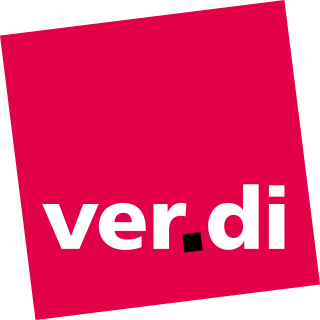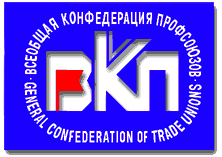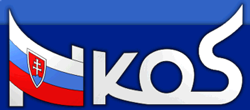A trade union or labor union, often simply referred to as a union, is an organisation of workers intent on "maintaining or improving the conditions of their employment", such as attaining better wages and benefits, improving working conditions, improving safety standards, establishing complaint procedures, developing rules governing status of employees and protecting and increasing the bargaining power of workers.
Employment is a relationship between two parties regulating the provision of paid labour services. Usually based on a contract, one party, the employer, which might be a corporation, a not-for-profit organization, a co-operative, or any other entity, pays the other, the employee, in return for carrying out assigned work. Employees work in return for wages, which can be paid on the basis of an hourly rate, by piecework or an annual salary, depending on the type of work an employee does, the prevailing conditions of the sector and the bargaining power between the parties. Employees in some sectors may receive gratuities, bonus payments or stock options. In some types of employment, employees may receive benefits in addition to payment. Benefits may include health insurance, housing, disability insurance. Employment is typically governed by employment laws, organisation or legal contracts.

Vereinte Dienstleistungsgewerkschaft is a German trade union based in Berlin, Germany. It was established on 19 March 2001 as the result of a merger of five individual unions and is a member of the German Trade Union Confederation (DGB). With around 1.9 million members, Verdi is the second largest German trade union after IG Metall. It currently employs around 3000 members of staff in Germany and has an annual income of approximately 454 million Euros obtained from membership subscriptions. The trade union is divided into 10 federal state districts and five divisions and is managed by a National Executive Board (Bundesvorstand) with nine members. Frank Bsirske was the chairman of Verdi from its founding in 2001 until September 2019, when Frank Werneke was elected.

Union busting is a range of activities undertaken to disrupt or prevent the formation of trade unions or their attempts to grow their membership in a workplace.

The General Confederation of Trade Unions or GCTU is an international trade union confederation. It was founded on 16 April 1992 and incorporates members from the Commonwealth of Independent States.

The Christian Labour Association of Canada (CLAC) is a labour union that represents companies in the construction, healthcare, and food industries. It was established in 1952 to represent workers on the basis of "Christian social principles". The union claims that its approach to labour relations develops workers' sense of responsibility, participation, stewardship, and dignity. It opposes what it calls the undemocratic, adversarial, and monopolistic practices of the labour movement. It has been characterized by other Canadian trade unions for being a "company union" for its support of employer friendly legislation.

The Modern Records Centre (MRC) is the specialist archive service of the University of Warwick in Coventry, England, located adjacent to the Central Campus Library. It was established in October 1973 and holds the world's largest archive collection on British industrial relations, as well as archives relating to many other aspects of British social, political and economic history.

The Independent Christian Trade Unions of Slovakia (NKOS) is a trade union center in Slovakia. It has a membership of 10,000 in three affiliated unions. Independent Christian Unions of Slovakia (NKOS) are an Open Union Confederation, based on Christian principles of democracy and humanism, registered at the Ministry of Interior of the Slovak republic on 26 May 1993 by law no. 83/1990 Zb. about Association of Citizens, as amended. History of NKOS In the years 1920 -1940 Christian unions were a significant factor in the state. They were called the Slovak Christian-social trade association. Their activity was forcibly closed in 1948. After the Velvet Revolution in 1989, an effort to restore their activity emerged. In 1990 the first Christian workers' clubs were created. Then came Christian Unions of Slovakia. Christian trade unionists efforts culminated on 26 March 1993 when NKOS were registered at the Ministry of Interior, their chairman was prof. Milan Katuninec. In 1994 the first NKOS trade union, railways, was created, with the chairman Joseph Micsinai and two years later the Trade Union of Workers in Education and Science of Slovakia came into existence with its first chairman Vladimir Cinderella. In 1995, a trade union KOVO METAL was founded, its first chairman was Dušan Mihalik. In December 1994, NKOS became a member of the International Labour Organisation. They became an observer of ITUC on the Compounding Congress in Vienna in 2006.
Trade unions in Germany have a history reaching back to the German revolution in 1848, and still play an important role in the German economy and society.
A collective agreement, collective labour agreement (CLA) or collective bargaining agreement (CBA) is a written contract negotiated through collective bargaining for employees by one or more trade unions with the management of a company that regulates the terms and conditions of employees at work. This includes regulating the wages, benefits, and duties of the employees and the duties and responsibilities of the employer or employers and often includes rules for a dispute resolution process.
The General Federation of Free Employees was an amalgamation of various socialist-oriented trade unions of technical and administrative employees in the Weimar Republic.

The World Organization of Workers (WOW) is an international trade union federation.

The Irish Congress of Trade Unions, formed in 1959 by the merger of the Irish Trades Union Congress and the Congress of Irish Unions, is a national trade union centre, the umbrella organisation to which trade unions in both the Republic of Ireland and Northern Ireland affiliate.
Georg Streiter was a German politician of the German People's Party (DVP).
Worker representation on corporate boards of directors, also known as board-level employee representation (BLER) refers to the right of workers to vote for representatives on a board of directors in corporate law. In 2018, a majority of Organisation for Economic Co-operation and Development, and a majority of countries in the European Union, had some form of law guaranteeing the right of workers to vote for board representation. Together with a right to elect work councils, this is often called "codetermination".
Syna is a general union in Switzerland.
The United Federation of Christian Trade Unions in Germany was a national trade union federation in Germany.







